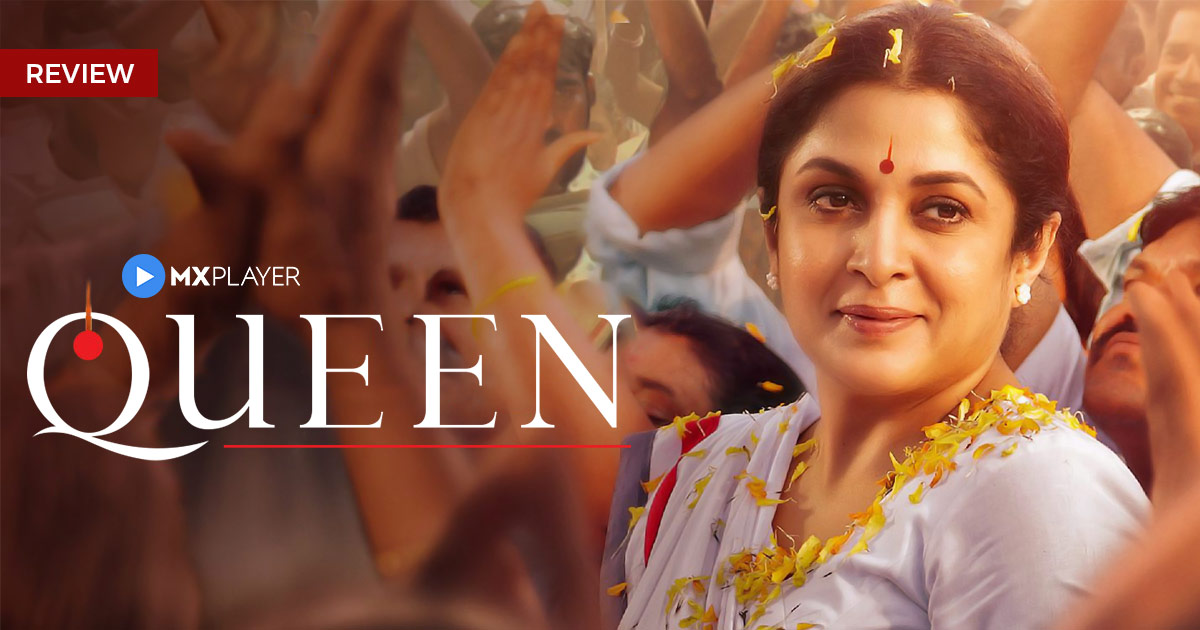
Welcome to the world of Unnati (read ‘Vikas’). The year is 2047. India is now a totalitarian state renamed as ‘Aryavarta’, ruled by a larger-than-life political leader – Joshi (Sanjay Suri) – the big brother style portraits of whom dominate the public as well as the personal spaces. The government maintains peace (and forces harmony) by creating sectors of heavily-guarded caste-based gated communities segregated by sky-high walls and the religious purity of its population is imposed by law.
Shalini (Huma Qureshi) is a dissenter caught on the wrong side of the law who has married outside her community and so far has been living a peaceful affluent life with her husband Rizwan Chaudhary (Rahul Khanna) and daughter Leila. The family seems to have gone too far for indulging in the luxury of a swimming pool of paid water – a rare commodity in the dystopian future. A fine evening, Shalini’s pool party is disrupted by Repeaters, an extremist outfit with the government’s backing. The husband is lynched, the daughter is taken away and Shalini is sent to a state-run purity camp – a euphemism for a prison for the women who have sinned. The camp is overseen by Guru Ma (Arif Zakaria) who subjects inmates to patriarchal oppression in the name of purification. The punishments are as extreme as being married to a dog or made to roll over the floor soiled with leftovers. Shalini manages to escape en route to a labour camp one day and goes on a quest to find her lost daughter.
The dystopian future of Urmi Juvekar’s Leila, the Netflix Original Series adapted from the critically-acclaimed novel of Prayaag Akbar, is a fictional reflection of the present socio-political climate marked by hyper-nationalism and religious divide. Bhanu (Rang De Basanti fame Siddharth) is the state-appointed minder of Shalini and part of a secret rebel group wary of government’s Skydome project – a state plan to shield the cities with giant air-conditioning domes. The engineer in charge of the project is disillusioned and falls out with the government after discovering the harm it would cause to the nearby slums – a ghetto for racially impure populace called ‘doosh’, surrounded with mountain-sized garbage dumps. The environment is toxic, the rain is black and people are fighting for every drop of water.
The biggest let down is Netflix’s approach to create the physical world and familiarise the audience with its complex characters. Except for routine holographic projections and extra bright transparent gadgets, nothing significant has been added to create a convincing future environment. It’s difficult to understand the true motivations of the characters and the cold robot-like behaviour of the supporting cast deprives Leila the heart it needs to anchor the narrative. A show that borrows heavily from The Handmaid’s Tale minus the sexual servitude and resembles the coldness of The Hunger Games falls well short of making the audience invest in the characters. Too much is left to be conveyed through the protagonist Shalini’s facial contours captured liberally in tight shots. A story set in the future has to deal with the evolved reactions of its generation to the issues of the time. The citizens of Aryavarta behave like a 2019 generation teleported and stuck in the year 2047 and don’t show any signs of thirty years of evolution, a mediocre world-building doesn’t help anyway. Leila does well with the political imagery though to reveal the fascist propaganda through clever symbolism highlighting the most disturbing events of the recent time.
“At first, there was just one Joshi. But now everyone believes they’re Joshi,” a politician determined to act against the government hints at the spread of Joshi’s ideologies like a disease. The followers donning Joshi’s face masks draw strong real-life parallels. Propaganda messaging fills the airwaves and the curriculum, as a tool of conditioning and mind control. Chants of ‘Hail Aryavarta’ are the incessant reinforcement of the nationalist agenda. The education of the mixed-blood children is aimed at brainwashing and turning them into patriotic slaves. The extent of brainwashing is a bit unconvincing when Leila forgets her biological mother and starts parroting ‘Aryavarta is my mother’. There are several references to the government’s marquee development agenda and its effectiveness is questioned on graffiti walls reading ‘Whose development? Whose country?’ Shalini and the renegade politician, Rao (Akash Khurana), bond over their common interest in Faiz Ahmad Faiz whose work is banned in Aryavarta, and a plan is put into execution to take down Joshi. The season ends with a cliffhanger but doesn’t evoke enough curiosity in the audience to find out what happens next.
Photo Credit: Netflix



